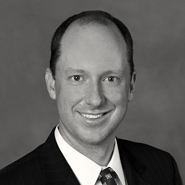Two Circuits Hold the FCA Does Not Require “Objective Falsity,” Creating Confusion on the Appropriate Standard
March 31, 2020Analysis:
United States ex rel. Druding v. Care Alternatives, Inc. (3rd Circuit) • Winter ex rel. United States v. Gardens Reg’l Hosp. & Med. Ctr., Inc. (9th Circuit)

In recent decisions this month, the Third and Ninth Circuits reversed defense victories predicated on the “objective falsity” standard under the False Claims Act (FCA). See United States ex rel. Druding v. Care Alternatives, Inc., No. 18-3298, 2020 U.S. App. LEXIS 6795 (3d Cir. Mar. 4, 2020); Winter ex rel. United States v. Gardens Reg’l Hosp. & Med. Ctr., Inc., No. 18-55020, 2020 U.S. App. LEXIS 8986 (9th Cir. Mar. 23, 2020). Both cases involve disputes between relators and defendants about whether a physician’s medical opinion is “false” within the meaning of the FCA. Although the relators prevailed on appeal in both cases, the Ninth Circuit’s opinion in Winter is far less problematic for FCA defendants. The Winter panel’s analysis makes clear that its holding does not represent a massive shift in approach and instead rejects only a label that some courts have used in analyzing disputes about medical opinions. Unfortunately, the Druding panel’s analysis creates the potential for significant confusion among lower courts bound by its holding and increases the risk that courts will allow meritless cases to proceed to discovery or trial.
Winter Background | Druding Background | Analysis
Winter Background
In Winter, the relator alleged that the defendants falsely certified that inpatient hospitalizations were medically necessary. 2020 U.S. App. LEXIS 8986 at *_. In relevant part, Medicare reimburses providers for inpatient hospitalization only if a physician certifies that admitting the patient to a hospital is reasonable and necessary for the patient’s treatment and documents the factors supporting that certification in the patient’s medical record. Id. at *_ (reviewing relevant Medicare statutes). The regulation acknowledges that the factors relevant to such a determination are “complex.” Id. (quoting 42 C.F.R. § 412.3). The relator alleged that the defendant hospital’s inpatient admissions increased significantly after a new management company began jointly managing operations and identified sixty-five patients whose medical records allegedly did not support the need for inpatient treatment. Id. at *_.
The district court granted the defendants’ motion to dismiss, holding that the relator had failed to allege “‘an objectively false representation’ . . . because ‘subjective medical opinions . . . cannot be proven to be objectively false.’” Id. at *_ (quoting United States v. Gardens Reg’l Hosp. & Med. Ctr., Inc., No. CV 14-08850-JFW, 2017 U.S. Dist. LEXIS 221356, at *20 (C.D. Cal. Dec. 29, 2017)). The Ninth Circuit reversed, holding that “a false certification of medical necessity can give rise to FCA liability.” Id. at *_. The court explained that a medical certification can be false “for the same reasons any opinion can be false or fraudulent,” including “if the opinion is not honestly held, or if it implies the existence of facts . . . that do not exist.” Id. at *_.
Druding Background
In Druding, the relators alleged that the defendant falsely certified that patients were terminally ill and eligible for hospice care. Medicare reimburses hospice care for otherwise eligible patients when (1) one or more physicians certifies that the patient is “terminally ill,” meaning the patient has a life expectancy of six months or less, and (2) “[c]linical information and other documentation that supports the medical prognosis” is included in the patient’s medical record. 2020 U.S. App. LEXIS 6795, at *4-6. Relevant guidance from the Medicare and Medicaid Services (CMS) explains that although “making a prognosis [of terminal illness] is not an exact science,” “a medically sound basis that supports the clinical judgment” is necessary for reimbursement. Id. at *6-7 (quoting 79 Fed. Reg. at 50,470; 70 Fed. Reg. 70,532, 70,534-35 (Nov. 22, 2005)).
Discovery produced “dueling expert opinions.” Id. at *8. The relators’ expert opined that, based on a review of a sample of patient records, thirty-five percent of the certifications of terminal illness were unsupported by the medical record. Id. at *8-9. The defendant’s expert opined that all of the defendant’s certifications and diagnoses were appropriate. Id. at *9.
After discovery, the defendant moved for summary judgment and argued that the relators failed to establish each of the required elements: falsity, scienter, and materiality. Id. The district court granted summary judgment based exclusively on falsity. In reviewing the factual record, the district court concluded that there was no evidence that the defendant pressured physicians to admit ineligible patients and no evidence that any medical records at issue were falsified. Druding v. Care Alternatives, Inc., 346 F. Supp. 3d 669, 687-88 (D.N.J. 2018). Instead, the only evidence supporting the relators’ case was the testimony of their expert, which the defendant’s expert disputed. Citing the Third Circuit’s prior statement that “expressions of opinion, scientific judgments or statements as to conclusions which reasonable minds may differ cannot be false,” id. at 688 (quoting United States ex rel. Hill v. Univ. of Med. & Dentistry of N.J., 448 F. App'x 314, 316 (3d Cir. 2011)), the district court held that a “mere difference of opinion between physicians, without more, is not enough to show falsity,” 2020 U.S. App. LEXIS 6795, at *9 (quoting 346 F. Supp. 3d at 685 (emphasis added in 3d Cir. opinion)).
The Third Circuit reversed, holding that “expert testimony that opines that accompanying patient certifications did not support patients' prognoses of terminal illness” was sufficient to establish a triable issue on the falsity element. Id. at *11. It remanded the case to the district court with specific instructions that the elements of “falsity and scienter must be [analyzed] independent from one another.” Id. at *25.
Analysis
Although the holdings in Druding and Winter are superficially similar, the depth of analysis and potential breadth of the holdings are quite different. In Winter, the Ninth Circuit took care to tie its holding closely to existing FCA precedent addressing medical necessity certifications and to precedent addressing the falsity of opinions. By contrast, the Third Circuit’s sweeping language and imprecise analysis in Druding could create significant confusion in the lower courts.
Both decisions start with the language of the FCA and conclude that, because Congress did not define the meaning of “false or fraudulent,” courts presume that Congress intended to incorporate the common law definitions. Winter, 2020 U.S. App. LEXIS 8986 at *_; Druding, 2020 U.S. App. LEXIS 6795, at *12. Both rely on the Supreme Court’s holding in Omnicare, Inc. v. Laborers Dist. Council Constr. Indus. Pension Fund, 575 U.S. 175 (2015) that opinions can be false under the securities laws. Winter, 2020 U.S. App. LEXIS 8986 at *_; Druding, 2020 U.S. App. LEXIS 6795, at *12. And both note that other circuits have held that medical opinions can be “false or fraudulent” within the meaning of the FCA. Druding, 2020 U.S. App. LEXIS 6795, at *17-18 (citing United States ex rel. Polukoff v. St. Mark's Hospital, 895 F.3d 730, 742-46 (10th Cir. 2018)) and *19 (citing United States v. Paulus, 894 F.3d 267, 275 (6th Cir. 2018)); Winter, 2020 U.S. App. LEXIS 8986 at *_ (citing Paulus and Polukoff).
The opinions diverge, however, in how they characterize the broader legal framework. The Winter panel explains that its opinion is not a sea change in the law. The panel cites the Ninth Circuit’s prior holding in Hooper v. Lockheed Martin Corp., 688 F.3d 1037 (9th Cir. 2012) that false estimates—essentially opinions—“can be a source of liability under the FCA.” Id. at *_; see also Hooper, 688 F.3d at 1049 (explaining that a bid can be false when it “is not what the defendant actually intends to charge”). It also explains that the breadth of its holding should be limited by “strict enforcement of the [FCA’s] materiality and scienter requirements,” Winter, 2020 U.S. App. LEXIS 8986 at *_ (quoting United Health Servs., Inc. v. United States ex rel. Escobar, 136 S. Ct. 1989, 2002 (2016)), and by the traditional requirements imposed by common law to limit claims of fraud based on subjective opinions, id. at *_ (explaining that an opinion is actionable if it “implies the existence of facts that do not exist, or if it is not honestly held,” or if the speaker lacks sufficient facts to justify it).
The Winter panel also notes that its holding is “not directly . . . contrary” to the Eleventh Circuit's recent decision in United States v. AseraCare, Inc., 938 F.3d 1278 (11th Cir. 2019). “In AseraCare, the Eleventh Circuit held that ‘a clinical judgment of terminal illness warranting hospice benefits under Medicare cannot be deemed false, for purposes of the False Claims Act, when there is only a reasonable disagreement between medical experts as to the accuracy of that conclusion, with no other evidence to prove the falsity of the assessment.’” Winter, 2020 U.S. App. LEXIS 8986 at *_ (quoting AseraCare, 938 F.3d at 1281 (emphases added in Winter)). The Winter panel explains that its holding is consistent with AseraCare for two reasons: (1) AseraCare recognized that medical opinions can be false under certain circumstances but not when the only evidence of falsity is disputed expert testimony, and (2) AseraCare recognized that applicable regulations provided for a more deferential standard of review for certifications of terminal illness—the issue in AseraCare and in Druding—than the medical necessity standard at issue in Winter. Id. at *_. The Winter panel also notes that, unlike AseraCare, it was considering a motion to dismiss that required acceptance of the relator’s allegations, which went well beyond “just a reasonable difference of opinion.” Id. at *_.
When compared to the careful analysis in Winter, the analysis in Druding suffers because the panel creates a strawman rather than engaging with the opinion below and supporting authorities. In the Third Circuit’s view, the district court improperly immunized all medical opinions from liability and botched its analysis of the falsity element in multiple ways. But a careful reading of the district court’s opinion and supporting authorities reveals that neither of these premises are accurate.
First, the Druding panel mistakenly asserts that the district court established a “bright-line rule that a doctor’s clinical judgment cannot be ‘false,’” id. at *18, and indicates its intent to “depart” from the Eleventh Circuit’s holding in AseraCare that “clinical judgments cannot be untrue,” id. at *23-24. But the district court held, consistent with the reasoning in AseraCare, that a dispute between the parties’ experts—without more—was insufficient to establish a triable issue. Druding, 346 F. Supp. 3d at 688; see also AseraCare, 938 F.3d at 1281. The AseraCare court found for the defendant not only because the government’s expert failed to testify that “no reasonable doctor could have concluded that the identified patients were terminally ill at the time of certification,” but also because he reversed his own opinion on several patients over the course of the litigation while continuing to assert “that both sets of contradictory opinions remained ‘accurate to a reasonable degree of certainty.’” Id. at 1287-88.
The Druding panel’s outright rejection of the holding in AseraCare creates unnecessary confusion. It is possible that the two courts actually reached the same conclusion—that an expert’s opinion asserting that no reasonable physician could have reached the conclusions at issue creates a triable issue of fact on falsity. See AseraCare, 938 F.3d at 1305 n.18 (explaining that “the Government could meet its burden under the falsity standard . . . if it could establish through expert testimony that no reasonable physician reviewing the medical records at issue could have concluded that a particular patient was terminally ill”) (emphasis added)). Because the Druding panel chose to distinguish AseraCare legally rather than engaging factually, it leaves significant questions about what expert testimony is required to create a triable issue of fact, as the Third Circuit and district court offer divergent characterizations of the record. Compare 2020 U.S. App. LEXIS 6795, at *8-9 (asserting—without citation to the record—that the relators’ expert opined that no reasonable physician would have certified the patients at issue as terminally ill) with 346 F. Supp. 3d at 688 (noting that the relators’ expert testified “that 12 of the 15 patients identified in the Amended Complaint were actually appropriate for hospice for at least part of their stay and . . . that reasonable physicians could differ with his assessment” (record citations omitted)).
Second, the Druding panel unnecessarily criticized the district court for the process it used to analyze the falsity element. Although the panel chastises the district court for improperly “limit[ing] its analysis to factual falsity,” Druding, 2020 U.S. App. LEXIS 6795, at *16, the district court’s opinion makes clear that it analyzed the relators’ claims under a legal falsity framework,1 see Druding, 346 F. Supp. 3d at 682-83 (explaining that the relators “invoke” the “implied false certification theory,” which is a form of legal falsity and citing Escobar, 136 S. Ct. at 2001, for the necessary requirements); id. at 687-88 (reviewing evidence in the record and concluding that the only evidence supporting a false certification is the testimony of the relators’ expert). Similarly, the panel’s criticism of the district court’s “improper[] conflat[ion] [of] the elements of falsity and scienter” in its analysis, 2020 U.S. App. LEXIS 6795, at *11 is also unfounded and is directly contradicted by the authorities the panel cites in support of its holding, see, e.g., id. at *12 (citing Omnicare, 575 U.S. at 183-86). In Omnicare, the Supreme Court explained that a determination of whether an opinion is true or false necessitated consideration of the speaker’s “own state of mind,” Omnicare, 575 U.S. at 184, even though the statute at issue in that case did not require proof of intent to deceive or defraud, id. at 175. And, to the extent a challenge to the opinion concerns the factual basis for it—either the absence of supporting facts or the presence of contradictory facts—that “inquiry . . . is objective.” Omnicare, 575 U.S. at 186-87 (explaining that whether a statement is “misleading” under the securities laws “depends on the perspective of a reasonable investor”). Similarly, in Paulus, the Sixth Circuit explained that, to be actionably false, a statement must be “capable of confirmation or contradiction”—a seemingly objective inquiry. 894 F.3d at 275 (quoting United States v. Kurlemann, 736 F.3d 439, 445 (6th Cir. 2013)).
As a result, it is unclear what the Druding panel expects of lower courts. It is likely that Druding requires a plaintiff’s expert to opine that no reasonable physician could have reached the conclusion at issue—the standard in AseraCare and Paulus—but it is possible given the district court’s description of the record that an individual expert’s personal disagreement with the treating physician is sufficient to create a triable issue of fact. Moreover, because the Druding panel repeatedly “reject[s] the objective falsehood standard” without providing clear guidance on alternative standards for pleading and proof, there is an increased risk that district courts will let meritless cases go to discovery or trial.
Given the Ninth Circuit’s more careful analysis in Winter and its explanation of why its holding does not conflict directly with AseraCare, it is unlikely that the Supreme Court will address whether the FCA requires “objective falsity.” Defendants that are forced to address Druding should carefully direct the court to the standards articulated in Omnicare. As the Ninth Circuit has explained in applying Omnicare, an opinion can be false only if (1) “‘the speaker did not hold the belief she professed’ and . . . the belief is objectively untrue”; (2) “a statement of fact contained within an opinion statement is materially misleading” because it is untrue; or (3) the opinion statement is objectively misleading due to the omission of a material fact. City of Dearborn Heights Act 345 Police & Fire Ret. Sys. v. Align Tech., Inc., 856 F.3d 605, 615 (9th Cir. 2017) (quoting Omnicare, 575 U.S. at 185–86). When pleading the falsity of a medical opinion, a plaintiff should, at a minimum, be required to identify specific facts that allegedly make the opinion false rather than simply pleading a conclusory disagreement on the ultimate issue. And at the summary judgment stage, an FCA plaintiff should be required to offer at least an expert opinion of objective unreasonableness and not just the expert’s subjective disagreement with the treating physician.
1 Many courts have identified two “kinds” of falsity under the FCA: factual falsity, which occurs “when the facts contained within the claim are untrue,” and legal falsity, which occurs "when the claimant . . . falsely certifies that it has complied with a statute or regulation.” Druding, 2020 U.S. App. LEXIS 6795, at *15 (emphasis removed).



